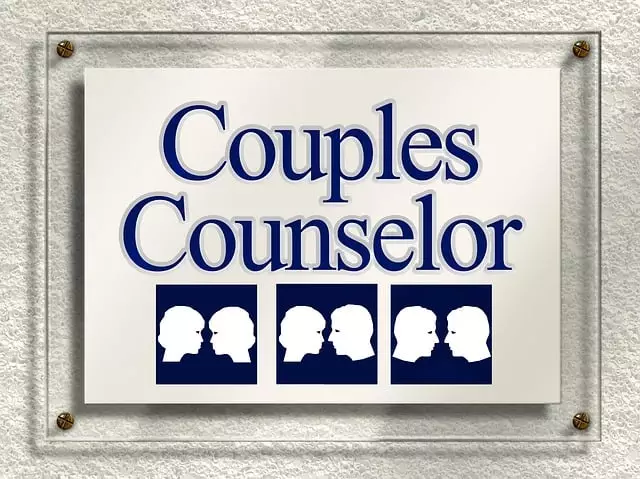Emotion-Focused Therapy (EFT) is a powerful couples counseling approach that emphasizes open communication and safe emotional expression. By helping partners understand each other's perspectives, EFT strengthens conflict resolution skills and fosters deeper connection. This method guides couples to identify emotions, explore underlying causes, and make meaningful adjustments in their dynamics. EFT prioritizes understanding and managing emotions, enhancing empathy, mutual respect, and relationship satisfaction over time. Selecting a specialized therapist with training in emotional regulation and attachment theory is crucial for successful couples counseling using EFT.
Emotion-focused therapy (EFT) is transforming the way couples navigate their relationships, addressing the deep emotional connections that often underlie relational issues. This therapeutic approach differs from traditional couples counseling by prioritizing the exploration and expression of emotions as key to fostering empathy, understanding, and repair.
This article delves into the mechanics of EFT for couples, exploring its benefits, techniques, and how to choose a qualified practitioner, offering valuable insights for those seeking to strengthen their relationships through emotional healing.
Understanding Emotion-Focused Therapy (EFT) for Couples

Emotion-Focused Therapy (EFT) is a powerful approach to couples counseling, designed to help partners understand and manage their emotions effectively. This therapy recognizes that emotional connection is at the heart of any relationship, and by fostering open communication about feelings, it aims to strengthen the bond between partners. EFT encourages individuals to explore and express their emotions, providing a safe space for vulnerability. Through this process, couples can gain valuable insights into each other’s perspectives, leading to improved conflict resolution skills.
The therapy involves helping partners identify and label their emotions, which is often the first step towards change. By acknowledging and validating each other’s feelings, they create a supportive environment, reducing defensiveness. EFT then guides the couple to explore the underlying causes of emotional patterns, allowing them to make meaningful adjustments in their relationship dynamics. This approach is particularly beneficial for couples seeking deeper connection and understanding, aiming to transform their interactions from reactive to proactive.
The Role of Emotions in Relational Issues

In many cases, relational issues within couples stem from a deep-rooted disregard for each other’s emotional experiences and needs. Emotion-focused therapy (EFT) recognizes that emotions are not merely fleeting reactions but powerful communicators of our needs, desires, and boundaries. When coupled with effective communication, understanding, and validation, this awareness can be transformative in couples counseling.
During sessions, therapists help partners learn to identify, express, and regulate their emotions healthily. By exploring and embracing their emotional landscapes, couples gain valuable insights into the root causes of their conflicts. This process fosters a deeper connection, empathy, and mutual respect, ultimately strengthening the bond between them.
EFT vs Traditional Couples Counseling: Key Differences

Emotion-focused therapy (EFT) stands apart from traditional couples counseling in its approach to resolving relationship issues. While conventional counseling often centers on identifying and fixing problems, EFT places a strong emphasis on understanding and regulating emotions. This shift in focus can be transformative for couples.
In traditional couples counseling, sessions might involve problem-solving techniques and conflict resolution strategies. In contrast, EFT encourages partners to explore their feelings, gain deeper insights into each other’s perspectives, and develop more adaptive emotional responses. By fostering open communication about emotions, EFT aims to strengthen the emotional bond between partners, leading to improved relationship satisfaction and resilience over time.
Identifying and Expressing Emotions Effectively

In emotion-focused therapy for couples, one of the key aspects is helping partners identify and express their emotions effectively. This process begins with creating a safe and non-judgmental space where each individual feels heard and respected. Therapists encourage clients to explore and acknowledge their feelings, often guided by open-ended questions that prompt deeper reflection. By fostering an environment of emotional honesty, couples can begin to understand the root causes of conflicts and disconnections.
Expressing emotions openly is another crucial component. Through active listening and empathy, therapists assist partners in communicating their needs, fears, and desires clearly. This includes teaching skills such as using “I” statements to express personal feelings without blaming, which fosters a deeper level of understanding and connection. Effective emotional expression in couples counseling paves the way for genuine resolution and strengthens the bond between partners.
Enhancing Empathy and Connection Through EFT

Emotion-focused therapy (EFT) is a powerful tool in couples counseling, aiming to strengthen the emotional bond between partners. During sessions, therapists encourage both individuals to explore and express their feelings openly, fostering an environment of safety and understanding. By helping each partner validate and empathize with the other’s emotions, EFT enhances their connection on a deeper level.
Through techniques like active listening, couples gain insights into each other’s perspectives, allowing them to respond more sensitively and compassionately. This increased empathy not only improves communication but also fosters a sense of intimacy and closeness, which are vital for a healthy and fulfilling relationship.
Tools and Techniques Used in Emotion-Focused Counseling

Emotion-focused therapy for couples leverages a range of powerful tools and techniques to help partners navigate their emotional landscape together. Central to this approach is the encouragement of open, honest communication where each partner feels heard and understood. Techniques like active listening, empathy building, and non-judgmental reflection allow therapists to guide clients towards deeper self-awareness and improved connection.
One key method is the exploration of emotions rather than their suppression or avoidance. Therapists help couples identify and express feelings, often using exercises that encourage the naming and understanding of emotions. By addressing underlying emotional needs and conflicts, this process fosters a more secure attachment between partners, strengthens their bond, and paves the way for more effective conflict resolution in couples counseling.
Benefits and Success Stories of EFT for Married Couples

Emotion-focused therapy (EFT) has proven to be a highly effective approach for married couples seeking couples counseling. One of its key benefits is its ability to foster deep emotional connection and understanding between partners. By encouraging open communication, EFT helps couples identify and express their feelings, which can lead to greater intimacy and improved conflict resolution skills.
Success stories abound, with many couples reporting significant improvements in their relationships after undergoing EFT. This therapy empowers individuals to explore and process complex emotions, ultimately fostering a stronger bond and enhanced satisfaction within the relationship. Through this process, couples gain valuable tools for navigating challenges together, leading to long-lasting positive outcomes.
How to Choose a Qualified Emotion-Focused Therapist

Choosing the right therapist is paramount for successful emotion-focused therapy, especially for couples counseling. Look for professionals with specialized training in emotional regulation and attachment theory, as these are foundational to this therapeutic approach. Ask about their experience treating relationship issues and if they have additional certifications or areas of expertise relevant to your needs, such as trauma or sexual health.
During initial consultations, assess the therapist’s ability to create a safe, non-judgmental space where both partners feel heard and respected. Effective communication and active listening are key indicators. Consider their approach to engaging each partner separately and facilitating joint sessions, ensuring all parties feel comfortable expressing their emotions freely.



